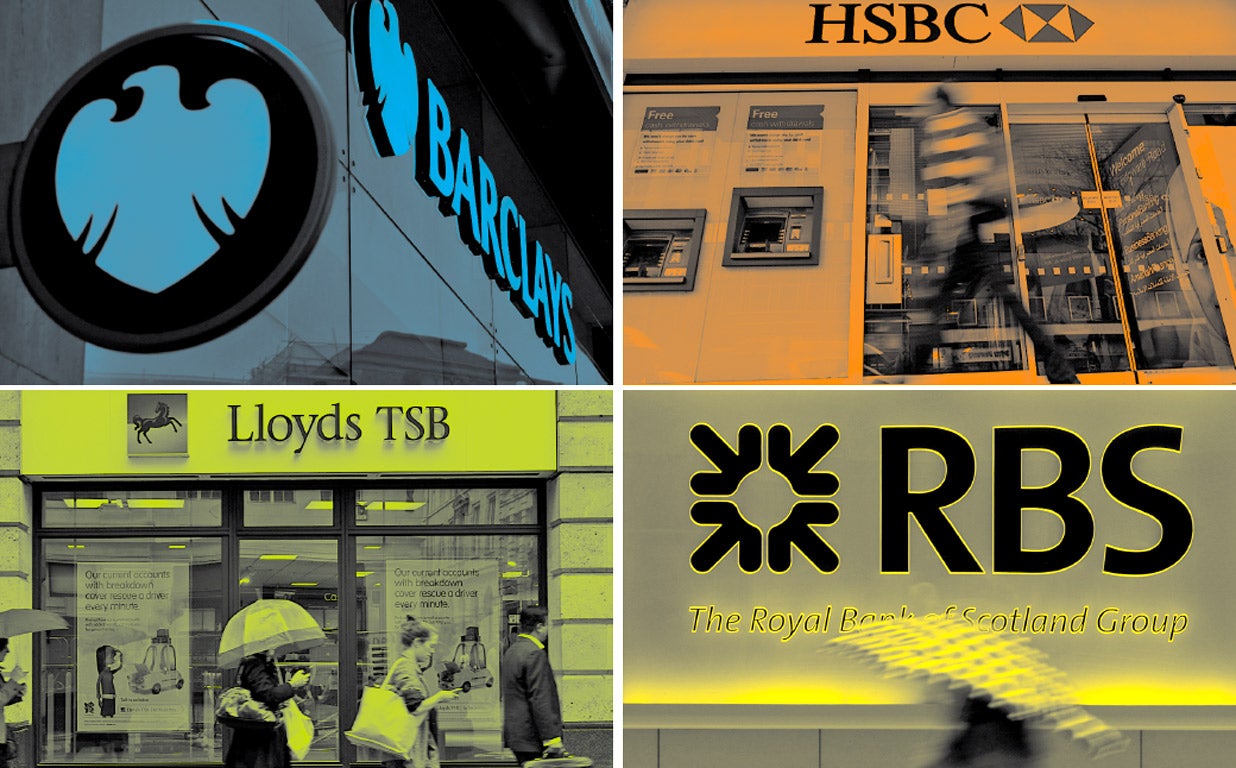Fifth of UK firms are under-investing because they say bank credit is not available for expansion
The findings will add to fears that the UK’s highly concentrated banking system is still hampering the economic recovery and dragging on productivity growth

A fifth of firms are under-investing because they do not feel that they can get the bank credit they need to expand, according to new research by the Bank of England.
The findings will add to fears that the UK’s highly concentrated banking system is still hampering the economic recovery and dragging on productivity growth.
In a major new survey of firms, the Bank found that a third of businesses judged that they had invested too little over the past five years.
And of these under-investors two thirds (20 per cent of all firms) said the reason was constraints on borrowing, including expectations of their loan application being rejected by banks, the demanded cost of the funds, the maturity on the repayment and the onerous collateral demands made by lenders.
The Bank said this under-investment due to lending constraints was especially notable among smaller firms, with 30 per cent claiming that they had faced external funding constraints on expansion.
Some 16 per cent of smaller firms said they did not even apply for financing for fear of rejection by their bank.
No credit?
Sir Jon Cunliffe, the Deputy Governor of the Bank of England, in a speech in Birmingham on Wednesday said the result “chimes perhaps with the still negative overall perception of financing conditions on the part of small firms”.
He also highlighted the fact that lending to non-financial firm, excluding real estate firms, only accounts for 12 per cent of UK banks’ domestic lending and small firm lending is just 4 per cent of the total.
Small firms have long complained that banks are not interested in lending to them for investment and deter applications through penal collateral demands, such as requiring borrowers to put their family homes at risk in the event of default.
Banks have denied this unwillingness, pointing to other survey evidence that many small firms simply do not want to borrow.
Sir Jon did add, however, that it was unclear whether the impression from firms that they would not be able to borrow to invest from their banks was warranted and that rejections could represent "prudent credit rationing” by lenders.
The Bank of England and the Treasury established a Funding for Lending Scheme to encourage banks to lend in 2012 amid fears viable firms were being starved of credit.
The Bank claims that it has successfully boosted lending to the sector relative to what would have happened otherwise.
However, the stock of SME loans has continued to fall for most of the past six years, and now stands at £165bn, down from £198bn in 2011.
Lending still down
Sir Jon noted that overall business investment had been considerably weaker since the financial crisis and that if it had continued to grow at its pre-crisis rate the UK’s capital stock would be 10 per cent higher.
The level of overall real business investment, fell year-on-year in the first three quarters of 2016 and most forecasters expect it to remain weak this year and next due to uncertainty from firms over the outcome of the Brexit negotiations.
In its latest round of forecasts, the Bank of England projected business investment to be around 20 per cent lower by 2019 than it expected before the Brexit referendum last June.
The Bank of England’s findings also suggested that a major constraint on investment has been financial market pressure to use profits to return money to investors, rather than to invest to expand.
Only a quarter of all firms prioritised using their internally generated funds for investment purposes.
The survey also suggested that firms were, on average, still looking for a 12 per cent return on investments, little changed from before the financial crisis despite the huge drop in interest rates over that period.
Subscribe to Independent Premium to bookmark this article
Want to bookmark your favourite articles and stories to read or reference later? Start your Independent Premium subscription today.

Join our commenting forum
Join thought-provoking conversations, follow other Independent readers and see their replies